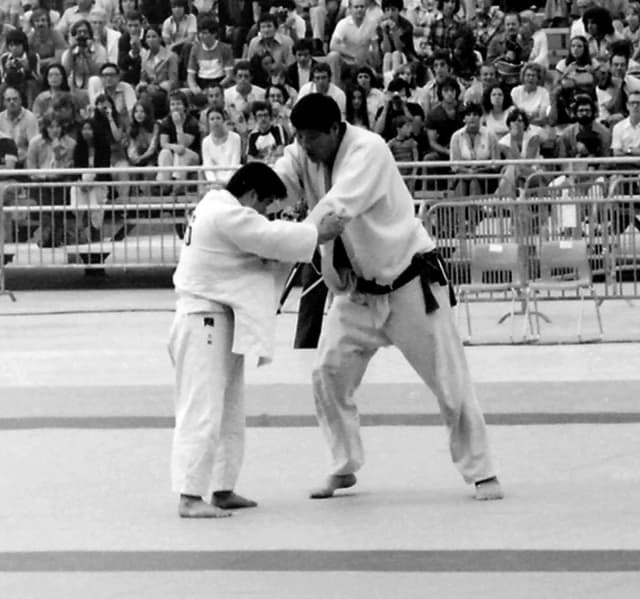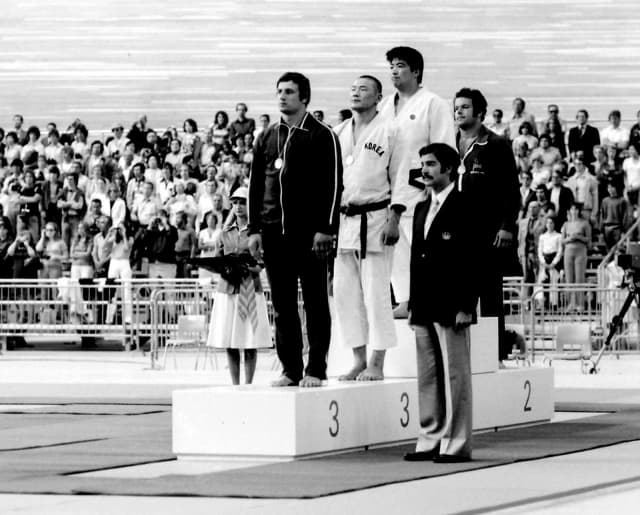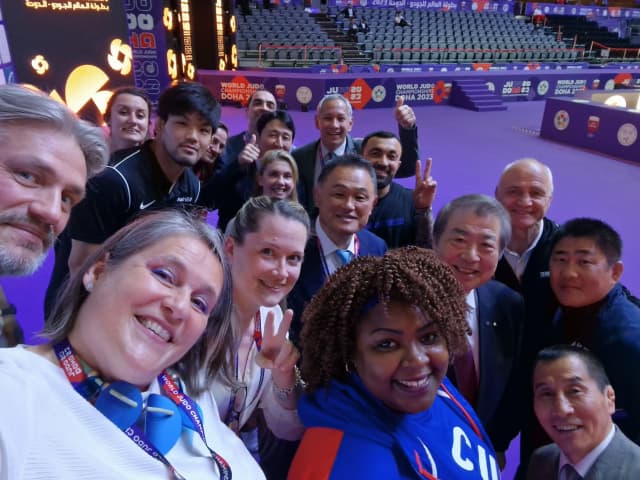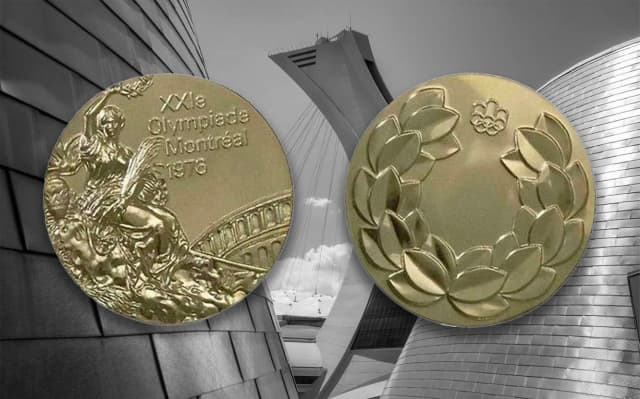We introduced the statistics, the almost impossible feat and the question in our first article in the series, which can be found here
https://www.ijf.org/news/show/151-olympic-champions-tokyo-to-tokyo
A reminder of the question:
It could be said that to be in the company of an Olympic judo champion is to be presented with someone whom has reached an absolute pinnacle, a ceiling which cannot be surpassed; there is nowhere further to ascend in the world of sport. We often find Olympic champions speaking with freedom and certainty, unafraid to share an opinion, speaking of their lives and paths with confidence. For many we feel there is peace, and that can be magnetic and inspiring.
So the question is, did they become Olympic champion because of that character or did they become that person having won the Olympic gold medal?
“I became Olympic champion in 1976 and it’s an important treasure for me. It is not only the result but the process to get there that is a big part of that treasure.
I have said before that as a child I was not good at sport. I had no real power and I was a bad boy. While an athlete I also worked for a company as a businessman. My bosses and elders tried to help me to become a better human and a good businessman.
I fought in the open category at the Games and compared with others I was small and not so powerful, not even the fastest and so I was facing some big walls! I wanted to become a more powerful judoka, to overcome powerful opponents."

"My boss at work gave me a book, as part of their guidance towards my growth and development, about some different ideas of psychology and because of the book I had new ideas and I thought about what my real weapon was in judo. Compared with others I was too small but my small size could also be a weapon. I had no speed or power but developed good flexibility and when combined with my small body I tried to make some new techniques and also a new way to train.
I used to run downhill instead of uphill, it was one of my ideas. My company had athletics as well as judo and they looked at me doing my downhill training and asked what I was doing, almost laughing at me. Actually, downhill training was very good for controlling balance and momentum, good training for tai-sabaki. I also did chin-ups but with judogi. Now we see this kind of activity a lot but no-one did it then.
One more important thing is that all athletes thinks about how to win. I think about how to win too but also how to not lose. If I don’t lose then it means I win! If I never give an opponent the chance to attack, I win. So, during the Olympic Games I had 4 rounds and in total they made four attacks, my first opponent managed just 1, none from the second, then one and finally 2 attacks came from Keith Remfrey (GBR) in the final."
"At an event after that Games, I met up with one of my opponents from that Olympic Games and we talked. He asked how it was possible that he tried to attack but couldn’t. I explained that it wasn’t that he couldn’t attack but that I stopped him with anticipation and some special control. I now have a long experience as a coach and I thought a lot about how I was coached too. We find a small mistake, fix it and repeat. Even a small single step can be the difference between one judoka and another.
With regard to the original question, I will say that maybe the medal is an indication of character. I had an ordinary life as a businessman alongside my athlete life and in both arenas I would think about what was good for me, what weapons I had. I may be slower to solve some things but I will analyse deeply and find a way. This was important for judo.
After I became Olympic champion I went to my sensei’s house. I really thought I knew everything then but sensei said a lot of things, at the core, ‘Haruki, judo is getting more and more difficult!’ At that time I listened and started to sweat. I felt some shame for thinking I knew it all and I realised that I didn’t at all.
I can summarise in this way: the athlete process makes one building. The coaching process makes many buildings. Referees must study even more as they judge all the buildings. When I became President of the Kodokan, I realised I knew only about the competitive side and that judo is huge. When we add the history, kata, educational journeys and more, each is one more building in the city of judo and we start to get a more accurate picture of what our sport and community really looks like. I like to talk about judo with lots of people, all the time; mondo is to teach but even more to learn."
"When I look back I remember that my school PE teacher did not believe I could do it. An Olympic champion must be well trained and have power, strength and speed. One reason I was able to overcome the negative expectations of others and of myself is that I met some good people along the way and had good experiences through them. There were other teachers who gave me the chance to think positively for myself.
My first time on the Kodokan mat was in my first year as a university student, for a competition, and it was a dream for me. In the first round I tried a seoi-nage but was stopped and strangled, knocked out, asleep. The referee woke me up and all the spectators were watching me. It was very embarrassing and I wanted to stop judo. From a first experience like that to becoming Kodokan President is really something. People around me made me strong, giving me time and opportunity to think. Maybe I’d have stopped if people around me were not so good.”
An analytical mind not fixed on the status quo, combined with the support of great people around him, drove Haruki Uemura to the top of the Olympic podium.
“I think the Olympic gold medal influenced my confidence because to reach that level of goals was wonderful and the success made me more confident to set more goals and know I can achieve them. I still continue this process even today.”



